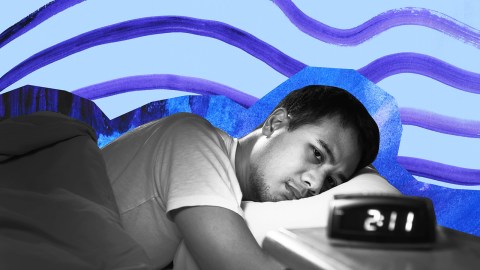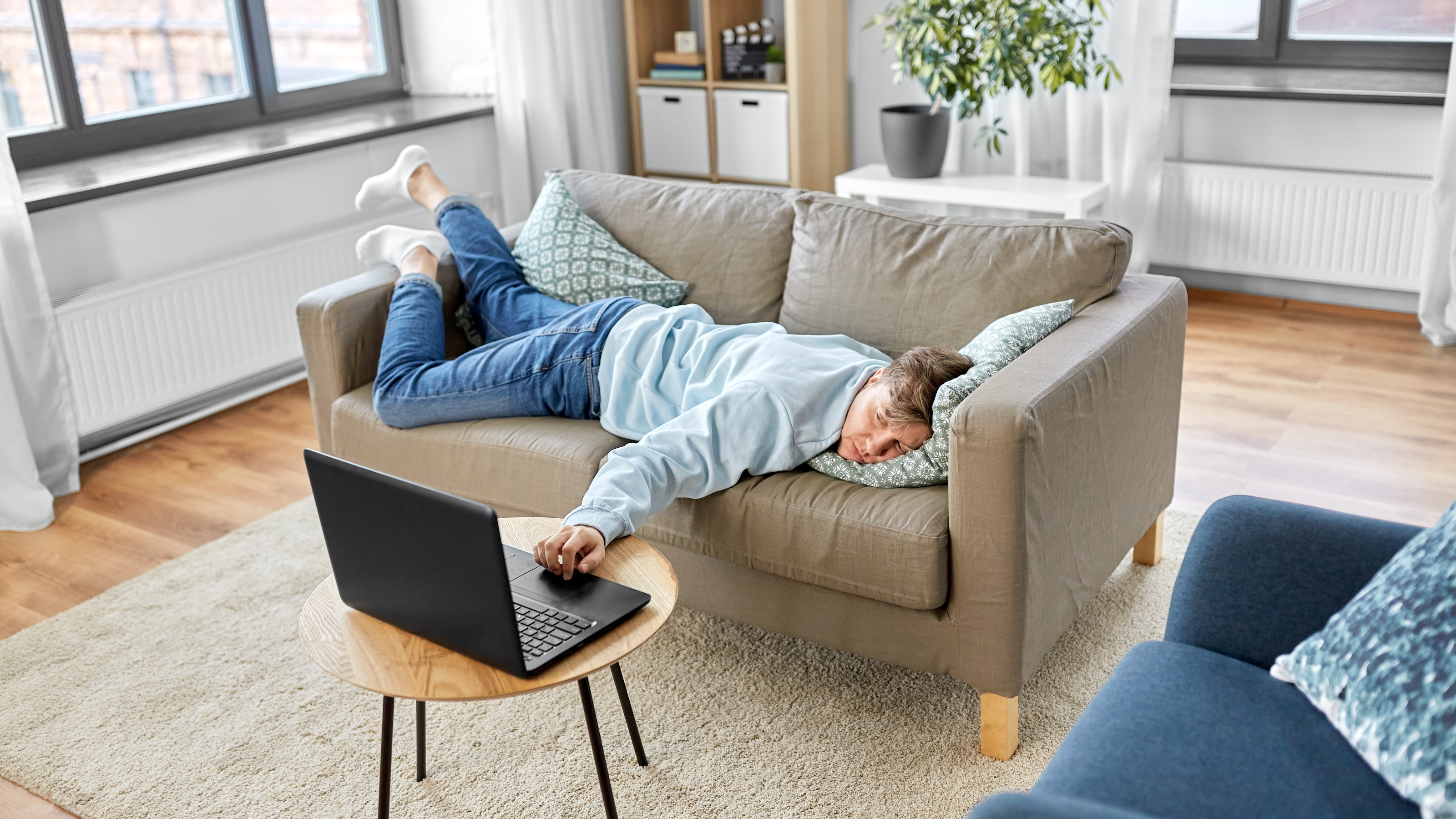Yes, you can be too tired to sleep

- “Overtiredness” is often blamed when infants are unable to fall asleep at night because they are stuck in an alert, emotional state.
- Adults can become overtired as well. Fatigue makes it harder for us to regulate emotions and process thoughts rationally, making it difficult to wind down at night.
- Giving your brain breaks during the day from our “always-on” existence can help prevent your brain from becoming overtired.
An “overtired” toddler is the bane of many parents’ existences. Your child hasn’t slept in a while and is clearly fatigued. Yet laying in the crib, they are restless and agitated, unable to gently drift off to dreamland and noisily demand your attention.
When overtired, toddlers are likely stuck in an emotional state, such as excitement, anxiety, or fear, wrote Helen L. Ball, a professor of anthropology and director of the Durham Infancy & Sleep Centre at Durham University.
“This is a survival response that helps us to stay awake when in danger, no matter how tired we are.”
Too emotional to sleep
But the crib tends to be a cozy, quiet, and safe place, so why is this survival response engaged? It’s because the longer humans go without sleep, the harder it is for us to regulate our emotions. A notable 2007 study showed that the emotion centers of sleep-deprived brains are more reactive to stimuli compared to rested brains.
“It’s almost as though, without sleep, the brain had reverted back to more primitive patterns of activity, in that it was unable to put emotional experiences into context and produce controlled, appropriate responses,” study author Matthew Walker, a professor of neuroscience and psychology at the University of California-Berkeley, and founder and director of the Center for Human Sleep Science, said of the findings.
Since infants need more sleep than adults — anywhere from 12 to 16 hours each day broken into numerous naps in addition to a longer nighttime bout — it’s easy for them to reach that overtired state, but adults are susceptible as well. Have you ever laid awake at night, dwelling on decisions you made earlier that day or planning for the chores you face tomorrow? You’re more likely to find yourself locked in this insidious cycle of rumination if you’re overtired.
“Rested brains are good at ignoring things that happen all the time but have no real consequence,” Matt Jones, a professor of neuroscience at the University of Bristol, told BBC Science Focus. But when overtired or experiencing insomnia, “you’re less able to let go — consciously or unconsciously — of irrelevant information,” he further explained.
Coincidentally, parents of young, potentially overtired kids are themselves more at risk of being overtired themselves. Balancing work and childcare, along with personal physical hygiene, while hopefully attempting to maintain a semblance of a social life, can be mentally and physically exhausting. Our incessantly “on,” hyper-connected existence can also make us overtired. Work emails at all hours, rapid-fire news reports, and social media notifications leave our brains little chance to relax during the day.
How to avoid being overtired
Allotting time for peace and quiet can help. A study published last fall found that a peaceful one-hour walk in nature free from other distractions soothes activity in the amygdala, the primary brain area that processes emotions, including fear and anxiety.
Also helpful is adopting good sleep hygiene. After all, poor sleep also makes us overtired, a brutal feedback loop. If possible, reduce the distractions you face at least an our before bedtime, particularly from technological sources. Importantly, this winding down process should not occur in bed.
“It’s all about managing what’s called ‘stimulus control,’ Dr. Alex Scott, a lecturer in psychology at Keele University told BBC Science Focus. “This basically means it’s a good idea not to associate your bed with too much worrying — that can lead to more sleep problems.”
The rumination that occasionally creates a sleepless night is often a product of your actions earlier in the day. Preventing your brain from getting overtired will make it easier to find peaceful repose at night.





